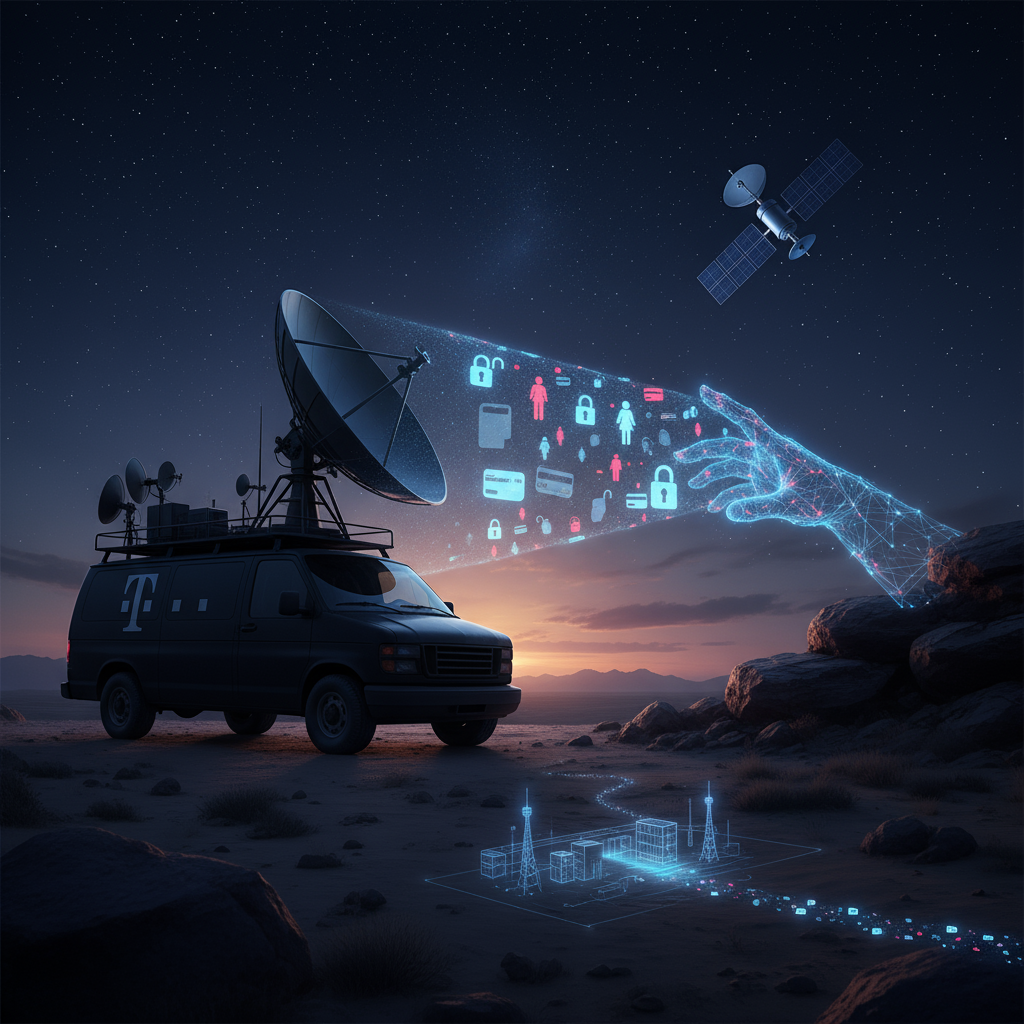Your Calls and Texts Leaking from Space: The Unencrypted Satellite Data Scandal

Imagine every sensitive conversation you’ve had, every private text message exchanged, floating freely through the cosmos, ripe for the picking. What if I told you this isn’t a sci-fi dystopia, but a chilling reality for some T-Mobile customers and even military personnel? Recent revelations have unearthed a disturbing truth: call and text data, including potentially sensitive military communications, has been captured from unencrypted satellite transmissions. This isn’t just a breach; it’s a stark reminder of the hidden vulnerabilities in our increasingly interconnected world.
The news, initially highlighted on Reddit and linked to a 9to5Mac report, paints a worrying picture of systemic oversight. While the exact scale and duration of the data capture remain subject to ongoing investigation, the implications are profound. It forces us to confront uncomfortable questions about data privacy, national security, and the surprisingly archaic underpinnings of some modern communication infrastructure.
The Silent Interception: How Unencrypted Data Becomes Fair Game

At the heart of this issue lies the concept of unencrypted data. When data is unencrypted, it’s essentially sent “in the clear” – like speaking loudly in a crowded room where anyone can overhear. In the context of satellite communications, this means signals beamed up to and down from satellites are accessible to anyone with the right equipment to intercept them. This isn’t the work of sophisticated nation-state hackers; rather, it can be achieved with relatively accessible, off-the-shelf equipment.
Consider a typical satellite phone call. While the terrestrial part of the call might be encrypted, the segment traveling via satellite might not be. This “leg” of the journey becomes a gaping vulnerability. Attackers don’t need to break complex codes; they simply need to listen in. The information captured could include caller and receiver identities, timestamps, and, most alarmingly, the content of the conversations and messages themselves. For a T-Mobile customer, this could expose personal details, financial information discussed over the phone, or private text exchanges. For military personnel, the compromised data could include tactical information, troop movements, or sensitive intelligence, posing a significant national security risk.
Beyond T-Mobile: A Broader Problem with Satellite Communications
While T-Mobile is specifically named in the reports, this issue likely extends beyond a single carrier. The problem isn’t necessarily T-Mobile’s fault in isolation, but rather a reflection of broader industry practices and the complexities of integrating varying communication technologies. Many satellite communication systems, especially older ones, were not designed with modern encryption standards in mind. The assumption might have been that satellite signals were inherently difficult to intercept, or that the sheer volume of data would make targeted listening impractical. These assumptions, however, have been thoroughly debunked by advancements in technology and the growing accessibility of satellite monitoring equipment.
This incident highlights a critical need for universal strong encryption across *all* segments of a communication path, regardless of the medium. Just as we wouldn’t send sensitive emails without encryption, the same principle must apply to satellite calls and texts. The weakest link in the chain inevitably determines the overall security of the communication. For telecommunication providers, this means a rigorous review of their satellite partners’ security protocols and potentially investing in upgrades to ensure end-to-end encryption.
The Military Dimension: A National Security Nightmare
The revelation that military data was also susceptible to capture elevates this problem from a consumer privacy concern to a national security crisis. Military communications are, by their very nature, highly sensitive and often critical to ongoing operations. The compromise of such data could have severe consequences, impacting troop safety, intelligence gathering, and strategic planning. Imagine enemy forces gaining access to real-time battlefield communications or the locations of covert operations. The potential for exploitation is immense and deeply concerning.
This underscores the urgent need for government agencies and defense contractors to re-evaluate their reliance on any communication channels that lack robust, end-to-end encryption. While specialized secure communication systems are often in place for the most classified information, the use of commercial or less secure satellite links for general communications or in specific operational scenarios can create unforeseen vulnerabilities. It’s a stark reminder that even seemingly innocuous communications can, when aggregated, paint a detailed picture for adversaries. This incident serves as a powerful call to action for a comprehensive overhaul of secure communication protocols within defense structures globally.
Securing Our Digital Pathways: A Path Forward
The capture of unencrypted T-Mobile customer and military data from satellite transmissions is a serious wake-up call. It’s a moment to reflect on our collective digital hygiene and the often-invisible pathways our data travels. For consumers, this reinforces the importance of being mindful about the information shared over any communication channel, especially when using satellite-dependent services. For telecommunications providers, it’s a stark reminder of their responsibility to implement and enforce stringent encryption standards across their entire infrastructure, leaving no “unencrypted leg” for opportunistic eavesdroppers.
Ultimately, the goal must be universal end-to-end encryption, ensuring that once data leaves its source, it remains protected until it reaches its intended destination, irrespective of the medium it traverses. This requires ongoing investment, innovation, and collaboration between carriers, satellite operators, and regulatory bodies. Our privacy and national security depend on it. This incident isn’t just about what *has* been captured; it’s about preventing what *could* be captured in the future. The time for proactive security measures is now.

